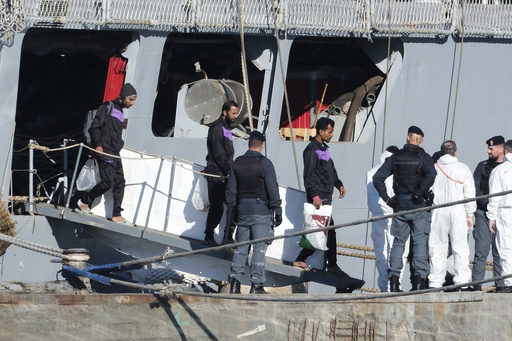
MILAN — Italy’s government, led by Premier Giorgia Meloni, faced setbacks in its initiative to screen asylum seekers outside of European Union territories, as a Rome court on Monday declined to rule on a motion regarding the detention of seven migrants recently relocated to Albania.
The ruling indicates that these seven individuals, originally from Bangladesh and Egypt, will be returned to Italy via naval ship shortly after arriving in Albania.
This situation mirrors a previous incident involving the initial group of twelve migrants, who also were returned to Italy due to a court ruling shortly after the establishment of two Italian-operated migrant screening centers in Albania.
In both instances, the courts have forwarded the cases to the European Union Court of Justice located in Luxembourg to determine whether the migrants’ home countries are considered safe for repatriation. The first twelve migrants had similar origins, coming from Egypt and Bangladesh.
The judicial rulings have provoked displeasure from the far-right government of Meloni, which has been striving to implement measures to alleviate the pressure from the influx of migrants seeking new opportunities in Europe.
In their latest ruling, the court indicated that it seeks to clarify which nations are classified as safe, stating that its purpose is to ascertain the correct procedures to be applied.
The court further mentioned that “the exclusion of a state from the list of safe countries of origin does not prevent the repatriation and/or expulsion of those migrants whose asylum applications have been rejected.”
As part of a five-year agreement, Albania has consented to allow Italy to manage two migrant centers within its borders, designed to accommodate up to 3,000 migrants each month for asylum vetting or potential repatriation.
However, this plan has faced criticism from human rights organizations and NGOs operating in the Mediterranean, who argue that it establishes a troubling precedent that may conflict with international legal standards.
Despite the establishment of the centers, Italy has struggled to identify a number of migrants anywhere near the intended capacity for screening in Albania, even with the significant number of arrivals on Italian shores since the facilities opened.
Current regulations specify that migrants transferred to Albania must be adult males without family accompaniment and from countries recognized as safe.
